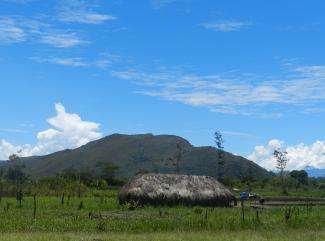Indonesia is supported by the Forest Investment Program (FIP) in its country efforts to address the underlying causes of deforestation and forest degradation and to overcome constraints that have hindered such efforts in the past. The Dedicated Grant Mechanism (DGM) makes part of the FIP and is a global initiative that provides grants to enhance the capacity and supports initiatives of Indigenous Peoples and Local Communities (IPLC) to strengthen their active engagement in FIP and other processes of Reducing Emission from Deforestation and Forest Degradation (REDD+) at various levels.
Facilated by Dewan Kehutanan Nasional (DKN), regional assemblies have been organised during Januari-June 2014 to select National Steering Committee (NSC). The NSC consists of 11 persons, representing 7 regions: Java, Sumatera, Kalimatan, Bali & Nusa Tenggara, Sulawesi, Maluku, and Papua, plus 2 persons representing IPLC women groups appointed by the constituents through participatory process, and 2 persons representing government and DKN. NSC then selected Samdhana Institute as the National Executing Agency (NEA).
DGMI falls within project category B which is not expected to have significant environmental and social impacts, but still requires a safeguard framework to ensure the activities will not harm the IPLC, especially the most vulnerable groups among the communities in accordance with World Bank's Environmental and Social Standards and the laws of the Republic of Indonesia.
To meet the requirements of the safety framework above, the NEA with participation of the NSC prepares the terms of social and environmental safeguards (ESMF), to guide them in the implementation of the DGMI in identifying, selecting, and assessing environmental and social issues posed by sub-projects in specific locations. ESMF also explains the management and mitigation measures that must be applied, as well as management plans to be prepared by the project implementers before the implementation of sub-projects.
The ESMF document is one of the primary reference documents necessary to implement socially sound DGMI. Following endorsement from the NSC, NEA is posting the ESMF document seeking for public comments and recommendations. Comments and recommendation could be sent to dgmi_esmf@samdhana.org. NEA is expecting to receive the comments and recommendations from those who place concern on the DGMI implementation by 30 November 2016.




